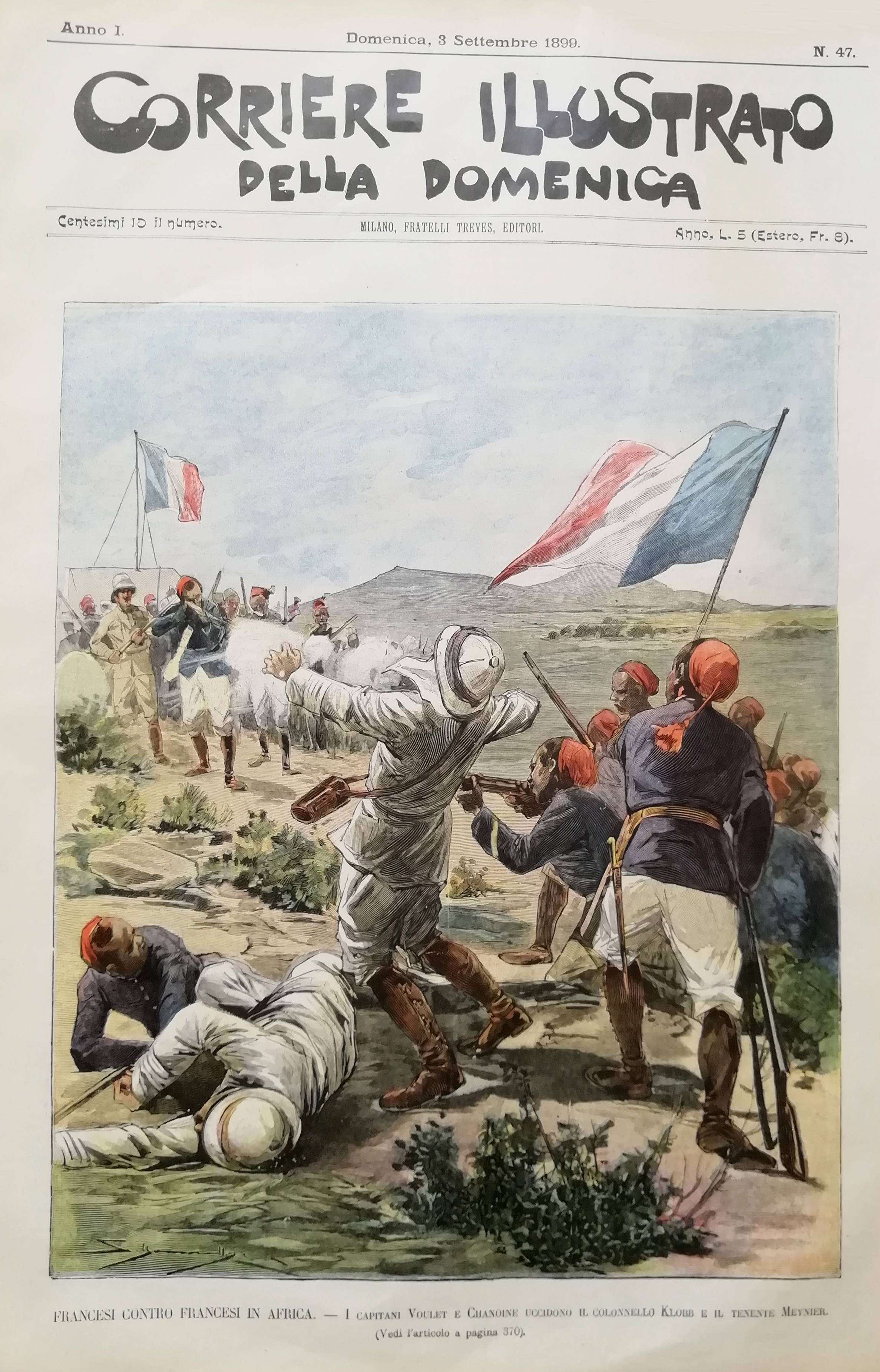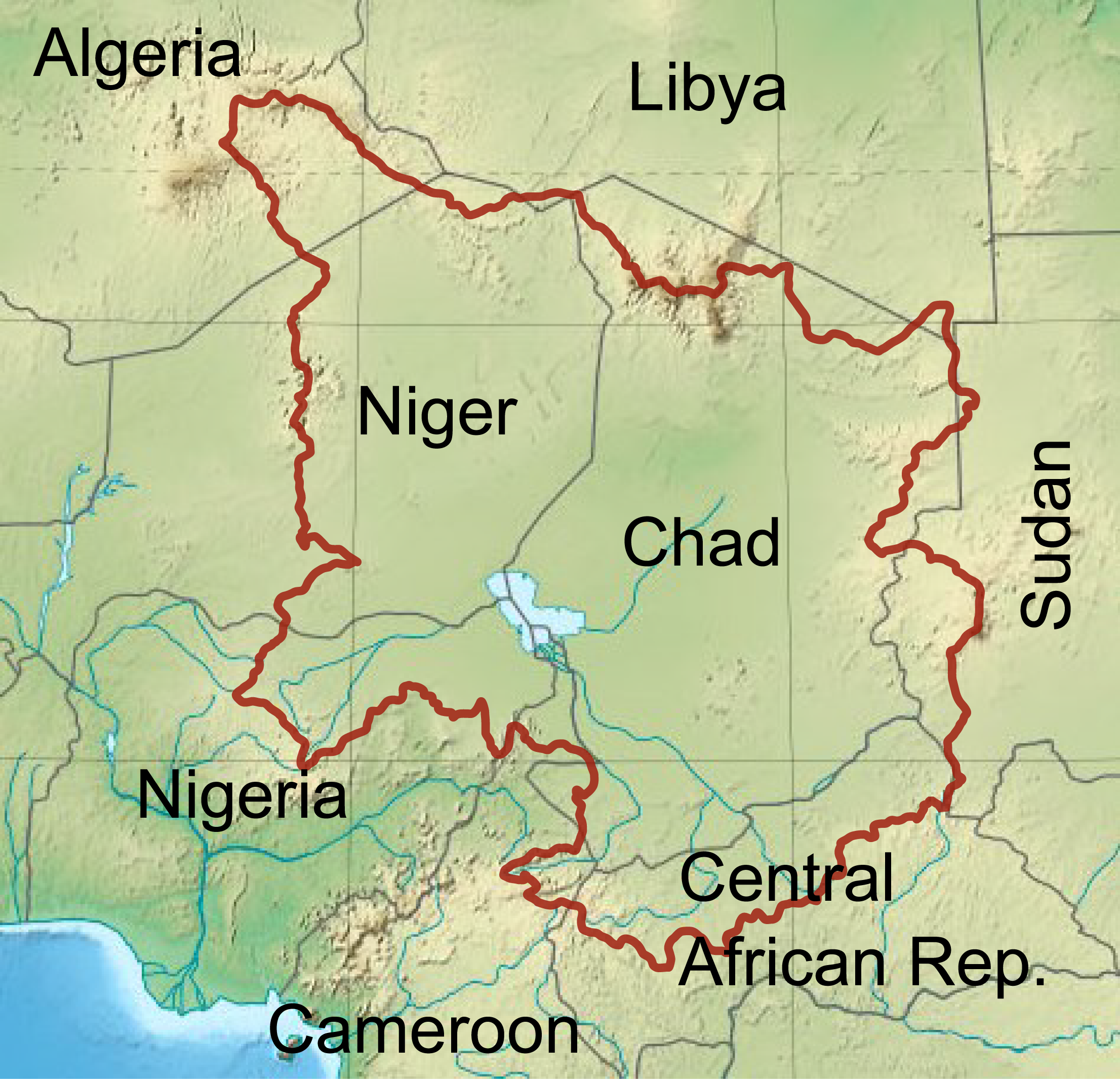|
Émile Gentil
Émile Gentil (; 4 April 1866 – 30 March 1914) was a French colonial administrator, naval officer, and military leader. He headed two military missions to conquer and consolidate territories north from modern Gabon to Chad. In 1902 Gentil was named commissioner-general of the French Congo residing at Brazzaville. Gabon's second-largest city Port-Gentil was named for him. Early life and military career Born at Volmunster in the department of Moselle, he later attended the École Navale, the school that formed French naval officers. As an ensign, he was assigned to conduct hydrographic soundings along the Gabonese coast from 1890 to 1892. That year, he joined the colonial administration in Gabon. Missions to the African Interior First Mission 1895–1897 In 1895, Gentil was ordered to find a practical route to Chad, claiming the area between for France, and hence thwarting German and British expansion. On 27 July 1895, Gentil headed up the Congo River on the French ste ... [...More Info...] [...Related Items...] OR: [Wikipedia] [Google] [Baidu] [Amazon] |
Kouno, Chad
Kouno is a sub-prefecture of Chari-Baguirmi Region in Chad Chad, officially the Republic of Chad, is a landlocked country at the crossroads of North Africa, North and Central Africa. It is bordered by Libya to Chad–Libya border, the north, Sudan to Chad–Sudan border, the east, the Central Afric .... References Populated places in Chad {{Chad-geo-stub ... [...More Info...] [...Related Items...] OR: [Wikipedia] [Google] [Baidu] [Amazon] |
Tirailleurs
A tirailleur (), in the Napoleonic era, was a type of light infantry trained to skirmish ahead of the main columns. Later, the term "''tirailleur''" was used by the French Army as a designation for indigenous infantry recruited in the French colonial territories during the 19th and 20th centuries, or for metropolitan units serving in a light infantry role. The French army currently maintains one tirailleur regiment, the 1st Tirailleur Regiment. This regiment was known as the ''170th Infantry Regiment'' between 1964 and 1994. Prior to 1964, it was known as the ''7th Algerian Tirailleur Regiment'', but changed its name after it moved to France as a result of Algerian independence. History Napoleonic period In the wars of the French Revolutionary and Napoleonic periods, the designation "tirailleur" was a French military term used at first to refer generically to light infantry skirmishers. The first regiments of Tirailleurs so called were part of the Imperial Guard of N ... [...More Info...] [...Related Items...] OR: [Wikipedia] [Google] [Baidu] [Amazon] |
Battle Of Togbao
On October 10, 1898, a French military expedition commanded by the ''Lieutenant de vaisseau'' Henri Bretonnet and the Lt. Solomon Braun left France directed to Chad, at the time dominated by the Muslim warlord Rabih az-Zubayr. With the missions were the envoys of the Muslim rulers Mohammed al-Senoussi and Abd ar Rahman Gwaranga, sultan of Baguirmi, whom captain Émile Gentil had brought to France a few months earlier. Shortly after Bretonnet's departure, news arrived that Rabih was attacking Baguirmi to punish it for its alliance with France; as a result, Bretonnet was ordered to reach the high course of the Ubangi River, and there unite with the Baguirmians and wait for instructions and reinforcements. Passing first by the Congo River and then by the lands controlled by Mohammed al-Senoussi, Bretonnet reached on June 15 the French post of Kouno and met with the king of Baguirmi Gaourang. He wrote on July 8, 1899, a letter to Émile Gentil, that headed another expedition procee ... [...More Info...] [...Related Items...] OR: [Wikipedia] [Google] [Baidu] [Amazon] |
Solomon Braun
Solomon Braun (1868–1899) was a French lieutenant of artillery, born at Paris in 1868 and died in Togbao, Chad, in 1899. His father, a poor peddler, observing Solomon's capacity for learning, made the greatest sacrifices to give him a good education. Solomon successfully passed the competitive examination for the ''École Polytechnique'', whence he graduated as lieutenant of artillery. In 1897 he obtained permission from the Minister of War to join the perilous expedition for the exploration of Lake Chad under Lieutenant Henri Bretonnet. The expedition was surprised by the forces of Rabih az-Zubayr Rabih az-Zubayr ibn Fadl Allah (; c. 1842 – April 22, 1900), also known as Rabih Fadlallah and usually known as Rabah in French, was a Sudanese warlord and slave trader who established a powerful empire east of Lake Chad, in today's Chad. B ..., ruler of the region, and almost every member of the mission was killed, Solomon included. References * {{DEFAULTSORT:Braun, S ... [...More Info...] [...Related Items...] OR: [Wikipedia] [Google] [Baidu] [Amazon] |
Henri Bretonnet
Henri-Etienne Bretonnet (1864, Mézières-sur-Seine – 1899) was a French naval officer, killed with most of his men in the battle of Togbao. Second Mizon mission Bretonnet entered in the navy by attending the École Navale, the Navy Academy in charge of the education of the officers of the French Navy. Among his first important mission was the participation in the second Mizon Mission in 1892; the expedition was commanded by ''lieutenant de vaisseau'' Louis Mizon, who under him Albert Nebout and Bretonnet as ''enseigne de vaisseau''. The expedition, that was to cover the territories between the Niger River and the Adamawa Plateau, Adamawa, was primarily designed to carve a French enclave on the Benue River in Northern Nigeria, a territory that the British claimed being theirs following the Berlin Conference. Ignoring the protests of the Royal Niger Company that Adamawa had been given to the British by the Berlin Conference, he hoisted the French flag in the region after a treaty ... [...More Info...] [...Related Items...] OR: [Wikipedia] [Google] [Baidu] [Amazon] |
Occupation Des Territoires Militaires Du Tchad
Occupation commonly refers to: *Occupation (human activity), or job, one's role in society, often a regular activity performed for payment *Occupation (protest), political demonstration by holding public or symbolic spaces *Military occupation, the martial control of a territory Occupation or The Occupation may also refer to: Arts and entertainment * ''Occupation'' (2018 film), an Australian film *Occupation (2021 film), a Czech comedy drama film * ''Occupation'' (TV series), a 2009 British drama about the Iraq War * "Occupation" (''Battlestar Galactica''), a 2006 television episode * "The Occupation" (''Star Wars Rebels''), a 2017 television episode *''The Occupation'', a 2019 video game *''The Occupation'', a 2019 novel by Deborah Swift *My Name Is Sara, also known as The Occupation, a 2019 American biographical drama film See also *Career, a course through life *Employment, a relationship wherein a person serves of another by hire *Job (other) *Occupy (other) ... [...More Info...] [...Related Items...] OR: [Wikipedia] [Google] [Baidu] [Amazon] |
Amédée-François Lamy
Amédée-François Lamy () was a French military officer. He was born at Mougins, in the French ''département'' of Alpes-Maritimes on 7 February 1858 and died in the battle of Kousséri on 22 April 1900 as a French explorer officer. Biography Family origins He was the son of lieutenant Joseph Sosthène Lamy (1818–1891), originally from Nancy, and of Elisabeth Giraud, from an old and notable Provençal family, whose father Louis Giraud, notary, had married Honorine Courmes, from Grasse, the latter was the daughter of Claude-Marie Courmes, mayor of Grasse from 1830 to 1835.Robert Maestri, Commandant Lamy, un officier français aux colonies, Maisonneuve et Larose, 2000, lire en ligne)/ref> Early years Lamy's ambition to become an officer developed very early; at ten-years-old, he entered the Prytanée national militaire, where he won the first prize in Geography in the general concourse of all the department's school, a possible sign of his future colonial career. In 187 ... [...More Info...] [...Related Items...] OR: [Wikipedia] [Google] [Baidu] [Amazon] |
Voulet–Chanoine Mission
The Voulet–Chanoine Mission, also called Central African-Chad Mission (), was a French military expedition sent out from Senegal in 1898 to conquer the Chad Basin and unify all French territories in West Africa. This expedition operated jointly with two other expeditions, the Foureau–Lamy Mission, Foureau–Lamy and Gentil Mission, Gentil missions, which advanced from Algeria and Middle Congo respectively. The refusal of the expedition commander and his second-in-command to follow orders from France, their murder of a commanding officer and their subsequent deaths at the hands of their own soldiers cast a dark shadow over France's emerging colonial empire in Africa at the end of the 19th century. The expedition is remembered for its descent into depravity and extreme violence, actions which today would legally be considered war crimes. Structure and directives The Voulet–Chanoine Mission to Lake Chad set out from Dakar in November 1898, moving through French Sudan (modern Ma ... [...More Info...] [...Related Items...] OR: [Wikipedia] [Google] [Baidu] [Amazon] |
Chad Basin
The Chad Basin is the largest endorheic basin in Africa, centered approximately on Lake Chad. It has no outlet to the sea and contains large areas of semi-arid desert and savanna. The drainage basin is approximately coterminous with the sedimentary basin of the same name, but extends further to the northeast and east. The basin spans four modern nations, including most of Chad and a large part of Niger, Nigeria and Cameroon. A combination of dams, increased irrigation, climate change, and reduced rainfall are causing water shortages. Lake Chad continues to shrink. Geology The geological basin, which is smaller than the drainage basin, is a Phanerozoic sedimentary basin formed during the plate divergence that opened the South Atlantic Ocean. The basin lies between the West African craton, West African Craton and Congo craton, Congo Craton, and formed about the same time as the Benue Trough. It covers an area of about . It merges into the Iullemmeden Basin to the west at the Dame ... [...More Info...] [...Related Items...] OR: [Wikipedia] [Google] [Baidu] [Amazon] |
Kingdom Of Baguirmi
The Sultanate or Kingdom of Bagirmi () was an Islamic sultanate southeast of Lake Chad in Central Africa. It was founded in either 1522, a tributary to the Bornu Empire for much of its existence, and lasted until 1897. Its capital was Massenya, north of the Chari River and close to the border to modern Cameroon. The kings had the title ''Mbang''. Bagirmi was first mentioned in a Bornu chronicle in 1578 as "Bakarmi". Bagirmi regained full independence from Bornu in the 18th century. It was conquered by Wadai in 1805, and again by Sudanese warlord Rabih az-Zubayr in 1893. In 1897 at the request of the ''mbang'' it became a French protectorate, and, after the killing of az-Zubayr and disintegration of his state, a French colony in 1902. The Sultanate continues to exist as a non-sovereign monarchy in Chad. History Origin and apogee According to Bagirmi traditions, the kingdom emerged from a group of chiefdoms around 1522. Some king lists hold Mbang Birni Besse as its founder ... [...More Info...] [...Related Items...] OR: [Wikipedia] [Google] [Baidu] [Amazon] |
Abd Ar Rahman Gwaranga
Abd ar-Rahman Gaourang II (also Gaorang or Gwaranga – 1918) was List of rulers of Bagirmi, Mbang of Sultanate of Bagirmi, Bagirmi from 1885 to 1918. He came to power at a time when the sultanate was in terminal decline, subject to both Wadai Sultanate, Wadai and Kanem–Bornu Empire, Bornu. The Sudanese warlord Rabih az-Zubayr made him his vassal in 1893. Gaourang signed a treaty that made his sultanate a French protectorate in 1897. After the final defeat of Rabih in 1900 he ruled as a subordinate of the French in Chad until his death in 1918. Early years The sultanate of Bagirmi was on the east bank of the Chari River, Chari to the south of Lake Chad. In the 19th century Bagirmi, once a province of the Bornu Empire to the northwest, was now disputed between Kanem–Bornu Empire, Bornu and the Wadai Empire to the northeast. The sultanate at this time was rapidly losing power. It paid tribute, mainly in slaves, to either Bornu or Wadai, or sometimes to both. The main source of ... [...More Info...] [...Related Items...] OR: [Wikipedia] [Google] [Baidu] [Amazon] |





